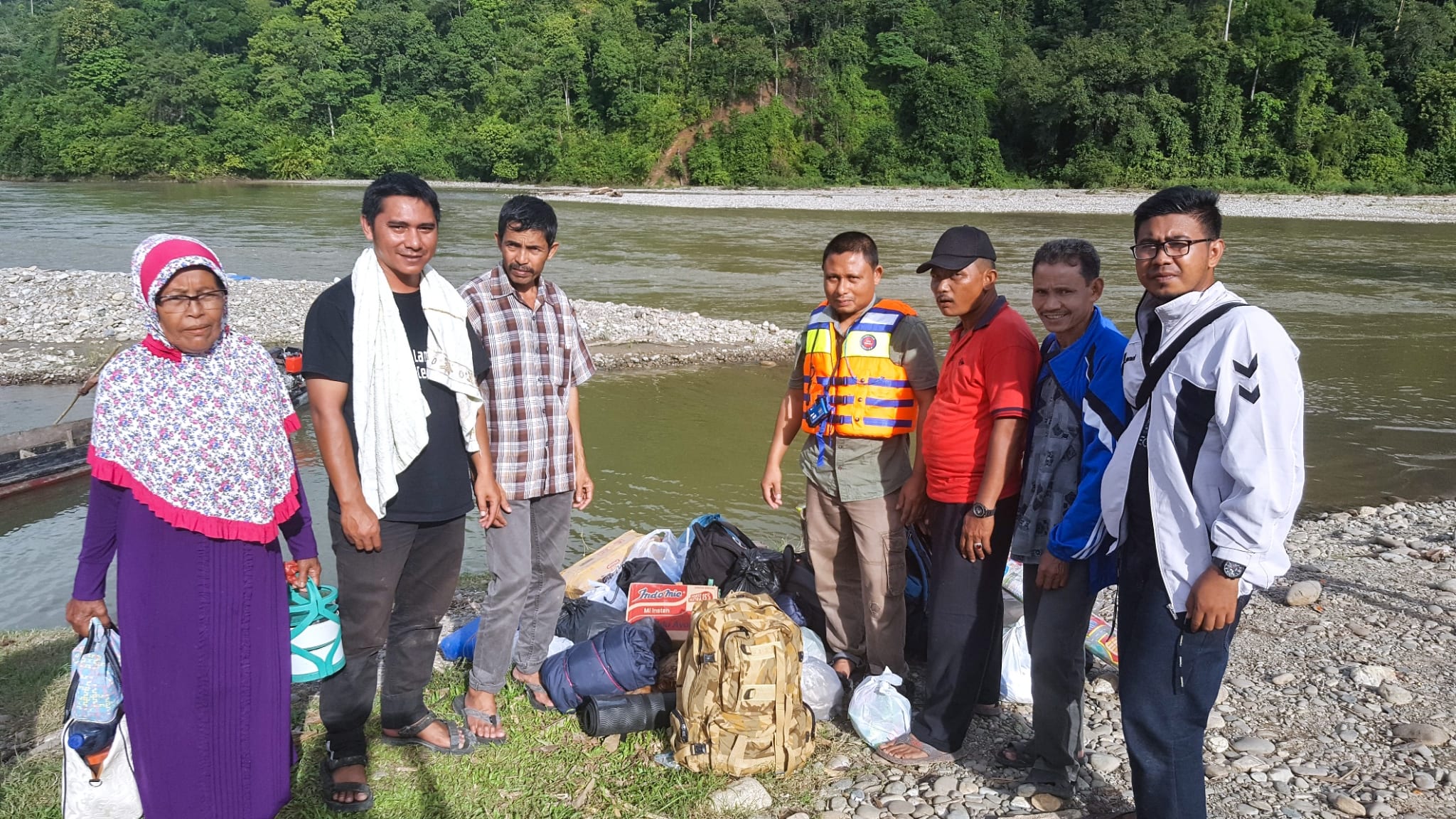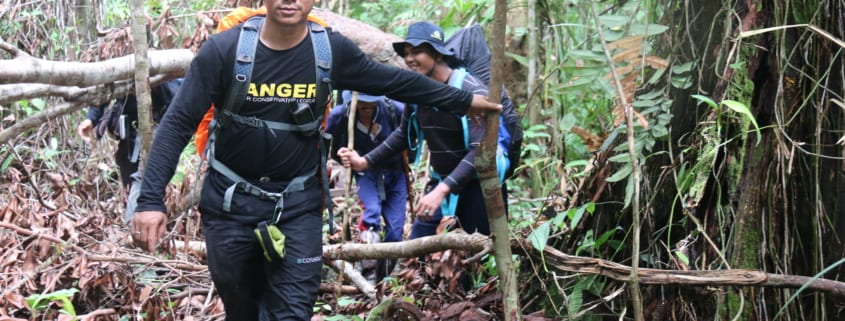Voices from the Rainforest: Bagus Irawan, Conservation Fellow
Rainforest Trust projects thrive thanks to the important conservation work of people on the ground. Our Voices from the Rainforest series brings you news from our projects in Latin America, Africa, Asia and the Pacific — from the perspectives of those working in and for the rainforests.

Raising Awareness for Conservation
Bagus Irawan is a Conservation Fellow in Sumatra, Indonesia, championing the Leuser Ecosystem, a verdant expanse of lowland and clouded mountain rainforests under extreme pressure from mining and palm oil, pulp and paper plantations.
Bagus focuses on community relations and conservation education. He is one of the few adults in the region that does not work for the government or an extractive company. Where many before him failed to make inroads with Kluet communities, Bagus is starting to succeed because of his patience and dedication to the forests he calls home.

Why did you become a conservationist?
I was born and grew up in the South Aceh district, which is part of the Leuser Ecosystem. Since I was little I have been accustomed to interacting with forests and wild animals, so I had the dream of becoming a mountaineer at that time. I have been in conservation since I finished high school at a conservation institution. There, I came to know the importance of conservation to maintain the stability of nature and wildlife for human survival. I see too many people who are destroying forests and hunting animals, so I take a small part in saving forests and animals, especially in the Leuser Ecosystem.
Tell us about a conservation success at your project site.
Many conservation agencies and forestry authorities couldn’t access the Kluet region because of community conditions. We also had the same challenge — how many times have we been expelled and threatened? But we continued to strive and manage the strategy. Now, we have a very good relationship with the entire community there and we can carry out activities according to what was planned. We have built traditional house facilities and monitoring posts. We have also been considered as family by much of the local community. Even during the construction of our monitoring post, the local community offered their land free to us.
Working to provide an understanding of conservation to local communities, especially with people who have different levels of education, is very difficult. For economic reasons, communities often convert forests into monoculture plantations. The challenge is to change the people’s mindset to become a conservationist society.
The first time I interacted with the community in Kluet I got a strong rejection. But the conditions are now inversely proportional. I feel that I have become part of the community there, like being at home.
What inspires you most about being a Conservation Fellow?
I want to share my experiences with friends around the world about the conservation activities we have done in Kluet. I also want to learn about other conservation experiences around the world. With my limited experience and knowledge here, by working with other fellows, I can participate in campaigning for Leuser conservation throughout the world.
Why is conservation important to you?
The environment requires balance to carry out its functions. If nature is disturbed it will have a very bad impact on life on Earth. The Kluet region is a key wildlife habitat in the Leuser ecosystem and is a source of livelihood for 20,000 people. The majority of them are farmers who need water for their fields and gardens. If this region is destroyed and not conserved, this potential consequences would be inconceivable. I would be very sorry to see the source of life of my families there disappear. Not to mention, key animals such as Sumatran Rhinos, Sumatran Tigers, Sumatran Orangutans and Sumatran Elephants — all Critically Endangered subspecies — will lose their habitat.





